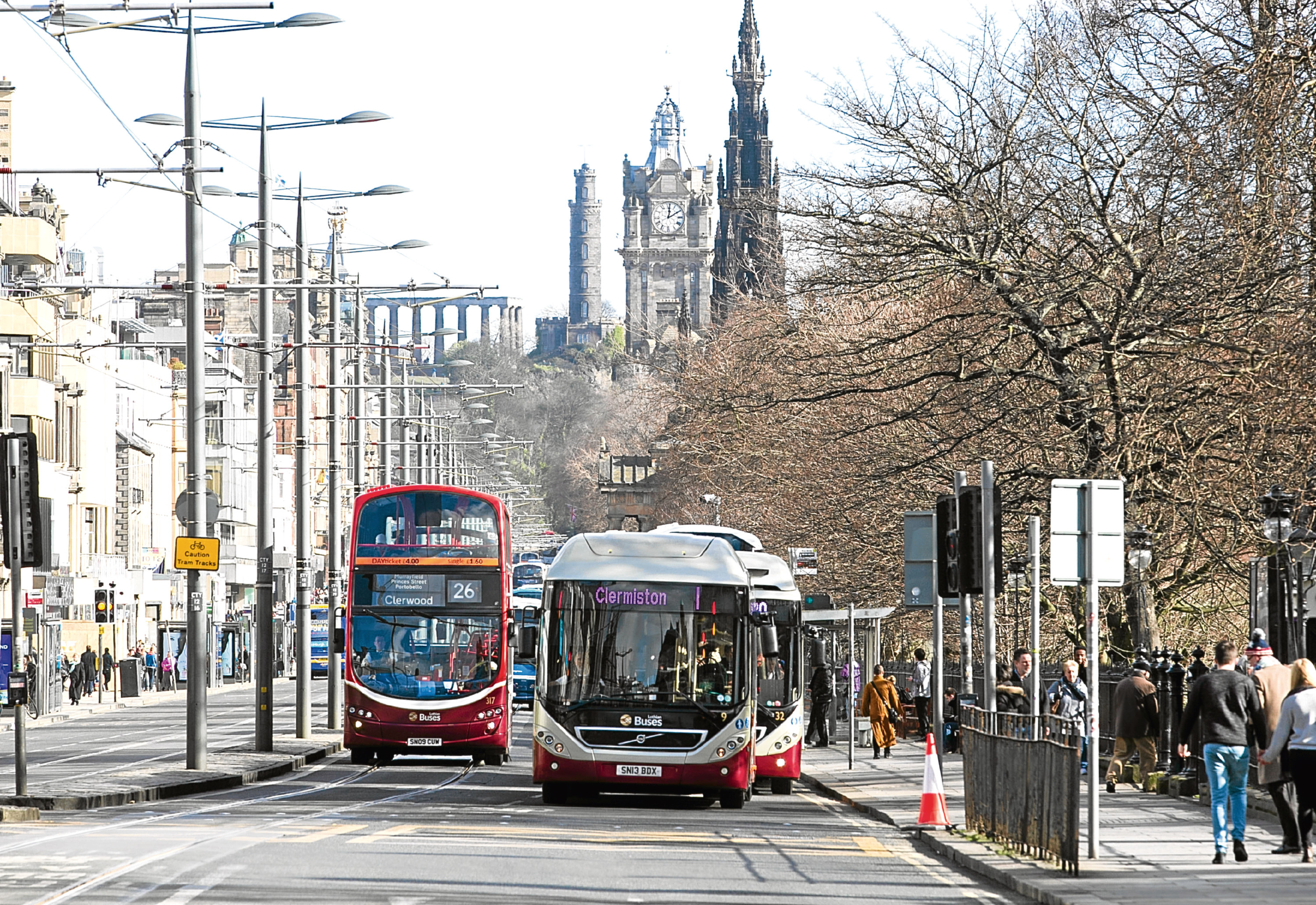
CONTROL over Scotland’s crisis-hit bus industry is to be put back into public hands through a new franchising system, The Sunday Post can reveal.
SNP ministers are planning the biggest shake-up of the sector since Margaret Thatcher’s programme of deregulation in the 1980s.
In the face of plummeting passenger numbers and soaring fares, the move would see councils given the power to introduce railway-style franchise deals.
Currently, private operators can set up services where they like and often cherry-pick the most profitable routes.
A new Transport Bill will let councils establish Lothian Buses-style municipal bus companies, allowing public v private bidding wars for newly-franchised routes.
Important but unprofitable services could be saved by being bundled with more popular routes in franchise deals.
The legislation will also force operators to publish standardised information on fares, timetables and – crucially – punctuality.
The Sunday Post has spent months cataloguing how fed-up passengers are being hit with inflation-busting fare rises and worsening services.
Transport Minister Humza Yousaf said: “The bus passenger figures are bad news.
“I am not happy to preside over this decline so I want to at least put in place the measures that will reverse the trajectory.
“The franchising idea would give a voice to bus users at a local level.
“This is enabling legislation, so it is local authorities coming up with the ideas. They could franchise their entire area, a certain city or town.
“What they would also do is take those socially necessary services, which might not be commercially viable, bundle or package them together, and then they might be an attractive proposition to franchise.”
Mr Yousaf hoped Lothian Buses’ success in bucking the trend of declining passenger numbers could be repeated elsewhere.
He added: “People talk about the legal dubiety around whether other local authorities could create a similar model to Lothian Buses. What I will look to do in this Bill is remove this uncertainty so if a local authority wants to go down this road then they can.
“This is not re-regulation. Wholesale re-regulation is not the answer to reversing the decline, and private companies of course would be allowed to bid for franchises along with any publicly-owned operator.”
The new Transport Bill – taking its lead from the UK Bus Services Bill going through Westminster – would require operators to share information about their services, such as punctuality statistics.
Mr Yousaf explained: “Fare structure around buses is not particularly transparent, certainly not in the same way that you know what your train fare is going to be.
“People don’t necessarily know how much bus fares are.
“Overall, though, this is about making the bus experience in line with other transport experiences, so looking at other issues such as Wi-Fi and power sockets, doing everything we can to make bus travel more useful and convenient.”
Buses account for three-quarters of all public transport journeys but last year’s tally of 409 million passengers was down five million on 2014/15 and down 78 million on 2007/08. More than 200 private firms, and one publicly-owned company, are responsible for providing all of Scotland’s commercial bus services.
Deregulation in the 1980s took the majority of routes out of public control, the idea being that competition between private operators would drive down fares and the need for public subsidies.
But competition in many areas of Scotland is virtually non-existent.
Unlike on the railways, there are no time- limited franchises with performance targets. And existing legislation makes it difficult for councils to step in and take control in problem areas.
Former Labour MSP Iain Gray’s Bill proposing giving councils more power over bus operators, including rail-style franchises, failed last year.
Last week, the Labour group on Aberdeen City Council called for the local authority to be allowed to run its own bus company after complaints about dominant local operator First.
Unite Scottish secretary Pat Rafferty said: “Our members in the bus industry are struggling to provide a decent service to the public.
“That’s not their fault – it’s the fault of a deregulated system that allows too many bus companies to put profit before people.
“That’s why we started our Haud the Bus campaign, calling on the Scottish Parliament to bring our buses back under public control.
“We welcome the Scottish Government’s commitment to making public regulation and ownership of buses part of the Transport Bill.
“But it’s a cautious welcome – we’ll obviously have to wait and see what the proposals are in detail.
“And we pledge to carry on our campaign, and continue to make the case for our bus services to be under common ownership, so that the people of Scotland can get the world-class bus services they deserve.”
A spokesman for the Confederation of Passenger Transport said: “Local authorities have had the ability to introduce a form of franchising since the 2001 Transport Bill and none have chosen to do so.
“There are plenty of levers local authorities could pull to improve bus services – such as tackling congestion and improving bus speeds – that don’t involve revisiting the regulatory framework.”
Fare rises across Scotland have rapidly outstripped the low rates of inflation of recent years.
Local bus fares have jumped by 18% over the past five years.
Recent research by Citizens Advice Scotland found prices also varied substantially across Scotland’s bus routes, ranging from 7p to £1.80 per mile.
The consumer group’s research found 38% of locations it surveyed had no Sunday services connecting residents with hospitals, while in remote rural areas the cost of a return ticket to the nearest job centre was £9.

Enjoy the convenience of having The Sunday Post delivered as a digital ePaper straight to your smartphone, tablet or computer.
Subscribe for only £5.49 a month and enjoy all the benefits of the printed paper as a digital replica.
Subscribe